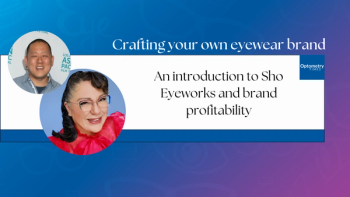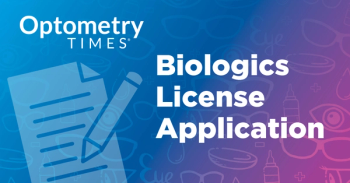
- Vol. 10 No. 9
- Volume 10
- Issue 9
Vision care back in Kentucky Medicaid mix
As doctors of optometry, we believe that proper eye health (I include vision as part of eye health) is essential to maximizing one’s quality of life. In fact, we are also aware that eye health examinations can additionally lead to better quantity of life because we know that an eye examination can lead to the discovery of conditions such as tumors and chronic disease.
Put this way, the argument for eye healthcare as being innate to the concept of social responsibility becomes quite clear.
Going a bit further, it can be surmised that proper eye healthcare-and healthcare in general-is innate to the concept of fiscal responsibility as well. Fewer sick people means fewer people requiring at times costly measures in order to be made well again (or just to be made less sick).
This statement may seem cold, but the cost of caring for the sick is one that comes into play with every state’s budget every year.
Medicaid in Kentucky
With this in mind, I am happy and relieved for the hundreds of thousands of Kentuckians relying on Medicaid for whom vision care has been restored. Public response to earlier plans this summer to cut these essential health benefits was a motivating factor in this reversal of decision, and optometry, both in Kentucky and on the national level, was a significant part of this outcry.
As stewards of eye health (again, I include vision as part of eye health), doctors of optometry have an obligation to do what we can to help ensure that this intrinsic attribute of welfare remains available. It goes along with caring for our patients, and it is in our oath to do so.
OD as lobbyist
I am no policy maker, nor is it my intent to be one. However, like all ODs, I am a lobbyist of sorts. I lobby (through my practice of and advocacy for optometry) for the betterment of those for whom we are charged with caring. Human welfare gets caught in the crossfire of policy decision-making all the time, and the recent events in Kentucky hit close to home.
Access to eye care is something worth defending-no matter what.
Articles in this issue
about 7 years ago
Why osmolarity should be the top test for tear film evaluationabout 7 years ago
3 strategies to grow your practiceabout 7 years ago
5 tips to impress contact lens patientsabout 7 years ago
View patients as missed opportunity, not lost causeabout 7 years ago
OCT helps diagnose retinoschisis in glaucoma patientsabout 7 years ago
Dry eye protocol for any practiceabout 7 years ago
When to send your hypertensive patient to the ERabout 7 years ago
Highlights of ARVO 2018’s anterior segment postersabout 7 years ago
Know the four stages of dry eye blepharitis syndromeNewsletter
Want more insights like this? Subscribe to Optometry Times and get clinical pearls and practice tips delivered straight to your inbox.










































